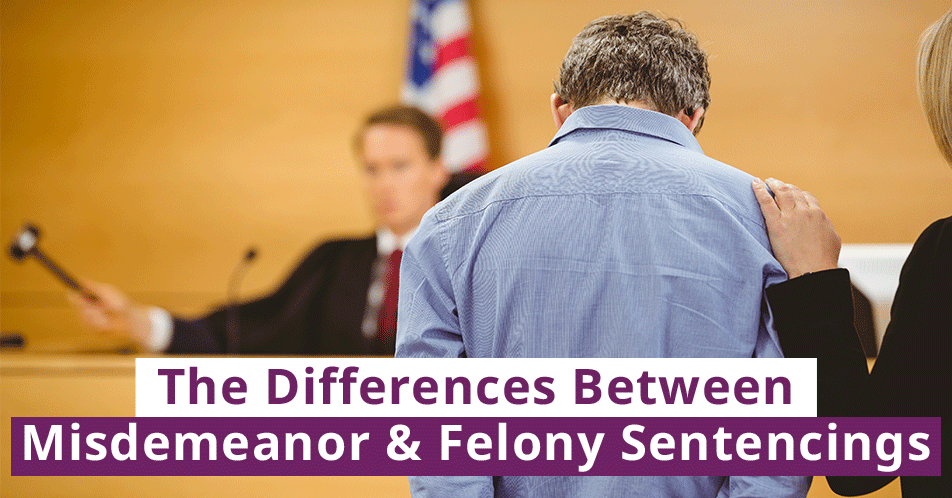
The Difference Between Misdemeanor & Felony Sentencings
Written on October 5, 2018. Posted In Uncategorized
The majority of criminal systems for states throughout the United States divide crimes into a wide range of different categories, depending on the severity of the crime. The division of these categories is what determines how the court system treats particular cases, including the sentencing, so it is essential to understand the difference between the categories. In most cases, the least type of infraction is civil offense, which generally includes a ticket and a fine. Following civil offenses are misdemeanor and felony offense. These types carry more serious and varying sentencing, depending on the severity of the crime. So, what is the difference between a misdemeanor and a felony? The following information will explain the difference between the two types of offenses.
Misdemeanor Offenses
A misdemeanor offense is more serious than a civil infraction. They are typically defined as an offense that is punishable by jail time, which can be up to a year. A misdemeanor is much less serious than a felony and the majority of people who are convicted of a misdemeanor go before a judge and often receive a punishment of a fine; however, their sentence often includes time in a county or city jail. Most states have three categories of misdemeanors; petty misdemeanors, ordinary misdemeanors and gross misdemeanors.
- The least serious is a petty misdemeanor, which often involves sentencing of a fine less than $500 and jail time of less than six months.
- Gross misdemeanor sentencings are less than those for a felony, however, depending on the offense, how many times the offender has committed crimes and circumstances involved in the crime, depending on your state, you may serve time in prison instead of jail.
Felony Offense
A felony is generally a much more serious crime than a misdemeanor and is usually associated with harsher sentencing. Felonies are serious crimes that often involve crimes against a person or an inanimate object, such as property. Examples of felony offenses may include
- Fraud
- Murder
- Armed robbery
- Rape
- Kidnapping
- Perjury
- Arson
- Tax evasion
- Drug trafficking
When convicted of a felony, the majority of states have a minimum sentence of 12 months in prison. Some states also evoke a three-strike law, which means if a felon who was previously convicted two or more times may be sentenced to life in prison. In the U.S., if certain misdemeanor crimes are committed repeatedly, the offender may be charged with a felony offense. For example, the first time someone is sentenced to an offense of DUI, it is considered a misdemeanor, but consecutive charges of the same offense may become a felony.
Most states are granted flexibility when sentencing for misdemeanors and felonies, there is generally no flexibility if the crime is against the federal government. For example, if the offense is tax evasion, most states are obligated to abide by the federal rules regarding punishment.
We are fully committed to reuniting families! Contact us.
At Free at Last Bail Bonds, we are fully committed to reuniting families. If you or a loved one needs our services, we are here for you 24 hours a day at 470-410-3409.

